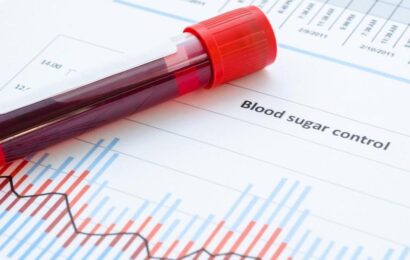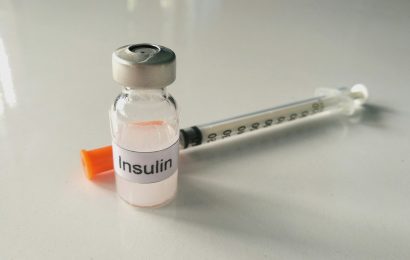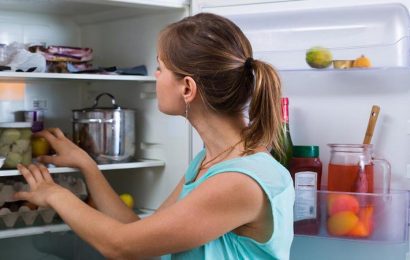If you’re like many people, you’ve probably experienced the dreaded “belly bloat” at one time or another. Belly bloating is a result of excess air in your digestive tract. You know the feeling: Your stomach is puffed out and hard, your waistband is digging into you, and maybe you have those uncomfortable gas pains. You might also have symptoms of gas (flatulence), burping, or a rumbling stomach, as your body tries to get rid of excess air.
Causes of belly bloating
There are a lot of reasons for being bloated. Certain medical conditions may be the cause. These include:
• Irritable bowel syndrome
• Inflammatory bowel disease (Crohn’s disease, ulcerative colitis)
• Gastroparesis
• Heartburn
• Fluid retention due to cancer, liver disease, or kidney failure
• Celiac disease
• Pancreatic insufficiency
• Perforation of the digestive tract
• Food intolerance
• Parasite infection
• Certain medications
• Stress or anxiety
Some of these causes are, of course, very serious and require medical attention. On the other hand, belly bloating (as bothersome as it is) may be due to overindulging (think second or third helpings of Thanksgiving dinner, for example). And, in many instances, belly bloating is caused by consuming certain foods and beverages. Let’s take a look at some of the common culprits.
Sugar-free foods. Foods labeled as being “sugar-free” have a certain appeal to people who have diabetes, as well as to people who are cutting back on calories. Sugar-free foods, by definition, are foods or drinks that contain less than 0.5 grams of sugar per serving. Artificial sweeteners (such as aspartame, sucralose, and stevia) and/or sugar alcohols (such as sorbitol, xylitol, and mannitol) are usually added to replace sugar and provide sweetness. Sugar alcohols are natural sweeteners that contain about half of the calories as sugar; this sounds great, but they’re also not digested completely. The bacteria in your gut have a field day with sugar alcohols and feast on them, causing fermentation. This fermentation leads to gas and bloating. Go easy on sugar-free candy, gum, cookies, and ice cream, especially if they contain sugar alcohols. And remember: Sugar-free doesn’t mean carbohydrate-free. Always read the Nutrition Facts label of any food or beverage that you consume.
Cruciferous veggies. Cabbage, broccoli, Brussels sprouts, and cauliflower are members of the cruciferous family. These strong-tasting vegetables are packed with nutrition, but alas, some people find that the price they pay is a bloated stomach, thanks to poorly digested carbs and their fiber content. Don’t give them up, though. Instead, try smaller portions and eat them more often to allow your gut to adjust. If you’re still bothered by bloating and gas, try an over-the-counter supplement such as Beano, which contains enzymes to help you better digest the carb.
Beans, peas, and lentils. We all get a chuckle out of the famous saying, “Beans, beans the magical fruit, the more you eat, the more you…” well, you get the idea. Also called legumes or pulses, these foods can also cause their fair share of bloating, leading some people to avoid them altogether. Beans, like cruciferous veggies, may lead to big-time bloating, thanks to their fiber content and the type of carb they contain, called FODMAPs. FODMAPs is an acronym that stands for “fermentable oligo-, di-, and monosaccharides, and polyols,” which are types of carbohydrates that many people don’t digest well at all. Your gut bacteria will thank you kindly, however, as they ferment these carbs, producing excess gas. Ask your dietitian or doctor about trying a low-FODMAPs diet for a short while; then, try gradually adding back offending foods. But if you love beans and other legumes, see if eating smaller amounts more often can help minimize gas and discomfort.
Carbonated drinks. Sodas, seltzer water, champagne, and Prosecco all contain carbonation (tiny bubbles) that can expand in your digestive tract and lead to bloating. Take note the next time you drink something “fizzy” — if it causes your belly to bulge, try sipping it more slowly, or switch to plain water or other non-carbonated drinks.
Milk and milk products. You might remember guzzling milk all the time when you were a child, but nowadays, you may notice that drinking a glass of milk or even using a small amount in your breakfast cereal causes bloating, gas, and maybe even diarrhea. You might have a lactose intolerance, which means that you have difficulty digesting foods that contain lactose, a type of sugar found in milk and other dairy foods. Lactose intolerance is very common and occurs due to a decrease in levels of lactase, an enzyme that breaks down lactose in the gut. Your doctor can test you for lactose intolerance to be sure. In the meantime, you have options: Try lactose-free or lactose-reduced milk, or switch to a non-dairy “milk,” such as almond, rice, or soy milk. You can also take a lactase supplement to help you digest lactose. In addition, you might find that you tolerate certain dairy foods over milk, including yogurt and hard cheeses.
Some fruits. Apples, pears, peaches, apricots, and dried fruits naturally contain sorbitol, a type of sugar alcohol, as well as fructose. Both of these carbs can be hard for some people to digest, leading to — you guessed it — bloating and gas. Solutions: Eating a smaller amount, eating the fruit more slowly, and maybe even taking a probiotic supplement are ways to let you still enjoy your fruit without the bothersome side effects.
Chewing gum. Chewing gum may contain sugar alcohols; in addition, when you chew gum, you end up swallowing a lot of air. Both can lead to bloating. You may need to cut back on or cut out gum chewing, or chew your gum for a shorter period of time.
When to check with your doctor
If your bloating doesn’t improve with dietary changes, it’s time to pay a visit to your doctor, especially if your symptoms are accompanied by blood in your stools, diarrhea, heartburn, severe stomach pain, vomiting, or weight loss. You will likely need an exam and tests to help diagnose the cause and determine the best course of treatment.
Greg Weintraub has successfully completed the 2017 Boston Marathon with Type 1 diabetes. Bookmark DiabetesSelfManagement.com and tune in tomorrow to hear his takeaways from the race.





